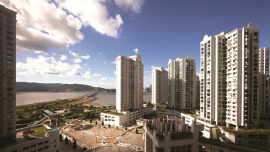The Chief Executive went to the Legislative Assembly for another round of its Q&A meetings. These meetings provide an opportunity to deepen the dialogue between the two political bodies and to clarify the public debate. It is not a perfect mechanism, but nothing prevents the participants from sharpening the contents and improving the procedures over time.
These sessions are, or should be, very significant moments in our political calendar. For the legislators, and all of us, they are an occasion to open windows to the mindset of the government on a varied set of topics; to become aware of the governments priorities, or to get a glimpse of the policies and measures under consideration.
As usual, the legislators came forward with various questions and the government provided some answers. Unfortunately, the interaction is sometimes less illuminating than it could be. Both questions and answers are frequently too broad or too vague to be useful for substantial analysis or debate.
One example in point refers to the oft-mentioned issue of the insufficient number of PortugueseChinese translators. It is one of those themes that keep recurring while it is still not clear, exactly, what is, for the administration, its exact nature and extent; or its main causes, their relative weights, or the alternative approaches to them. So, we are bound to take any policy statements with some degree of reserve.
The CE reaffirmed the idea that there is a serious dearth of Portuguese-Chinese translators, a statement that many have brought forward over a long period of time. Then he added that the region needs, as a matter of priority, 200 new bilingual translators. (An aside on redundancy: monolingual translators would be quite useless, wouldnt they?) The point is: it is not clear how the administration reached this figure, or which is the related time frame. The reference was made in association with the role Macau has or should perform in strengthening relations between China and the Portuguese-speaking countries.
Does it imply that this is the main obstacle to the development of the activities mentioned? What about other areas? How many translators are there, currently, and what problems are they (and their services) facing? Is the training and education system adequate, or does it need change? Are there alternative policy scenarios? Many other questions could be put forward. Without answers to them, the debate is poorer and the scope of all judgments inevitably limited.
























